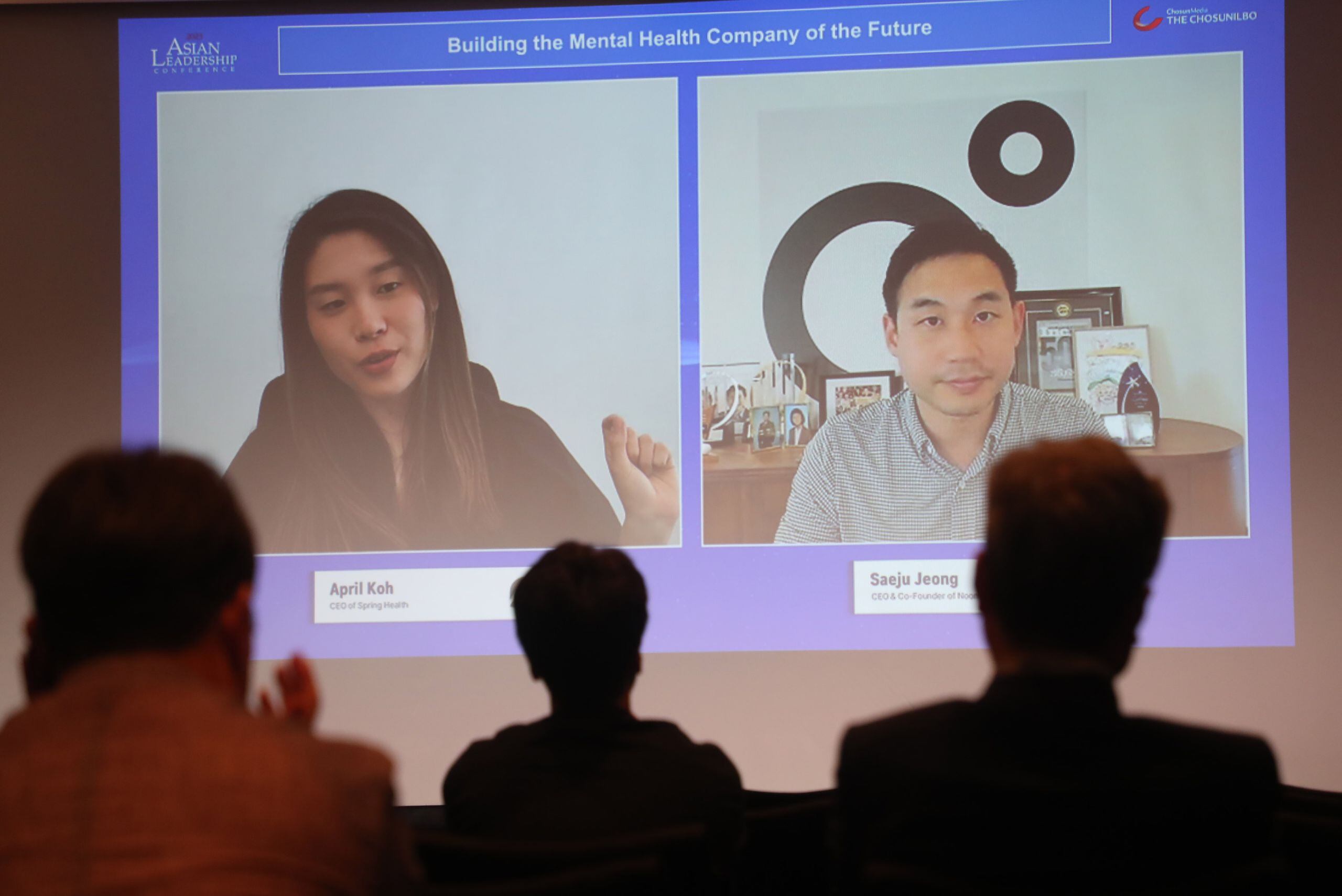In recent years, there has been a growing awareness of the importance of mental health in the workplace, prompting large corporations to take proactive steps in supporting their employees’ well-being. This shift in perspective reflects an understanding that employee mental health directly impacts organizational productivity and success.
“Even big corporations, who used to shy away from mentioning workplace stress, are now gradually introducing services to manage their employees’ mental health. The realization that when employees suffer from mental issues, it affects the overall productivity of the company has dawned upon them.” April Koh, the CEO of Spring Health, made these remarks at the Asian Leadership Conference (ALC).
She noted that the demand for personalized mental health management services has increased significantly, especially since the onset of COVID-19. Koh founded Spring Health, a personalized mental health care company, in 2016. Last year, Spring Health was recognized as a unicorn (a privately held startup company valued at over $1 billion) and she became the ‘youngest female unicorn company CEO.’ Currently, Spring Health is valued at $2 billion (approximately 2.6 trillion won). They analyze users’ mental health status obtained through surveys and counseling using artificial intelligence and provide therapies such as meditation, online cognitive behavioral therapy, offline counseling, and exercise therapy.
On this day, Koh discussed the future of mental health management services with Saeju Jeong, the CEO of digital healthcare company Nudge. Nudge, a service that manages lifestyle habits and aids in weight loss, has also ranked first in health category sales on the Google Play Store. Jeong stated, “The negative stigma surrounding mental illnesses is fading, and checking mental health has become an important task.” Koh emphasized, “Platform matching services that connect people and services were previously viewed as innovative, but now they are considered standard technology. People want to quickly connect with doctors or counselors according to their needs, and I believe that supporting employees in managing their mental health is a cost-effective approach for companies.”
Another significant change is the attention the older generation is paying to their children’s mental health. Koh remarked, “With issues like children getting immersed in social media and being exposed to online harassment, parents seeking psychological counseling for their children are increasing.”
The discussions at the ALC underscored a significant paradigm shift in how businesses approach employee well-being. April Koh, through her pioneering work with Spring Health, exemplifies the transformative impact that personalized mental health care can have on individuals and organizations alike. Likewise, Saeju Jeong’s insights into the digital healthcare space highlight the potential for technology-driven solutions to address the growing demand for mental health support. As more companies recognize the link between employee mental health and overall performance, investing in innovative mental health management services is not just a strategic choice but a moral imperative. By fostering a culture of mental health awareness and providing accessible resources, corporations can nurture a happier, healthier workforce and pave the way for long-term success.
Learn more about the Center for Asia Leadership’s programmes in strategic foresight and adaptive leadership here at bit.ly/lead-asia.
What is your response to the rapid pace of change around us? The best response is to learn and adapt. Here is how we can help your organization adapt to ongoing disruptions and thrive amid challenging times through our Adaptive Leadership Signature Program that addresses the past culture, while building the teams’ capacity to create a new future.



